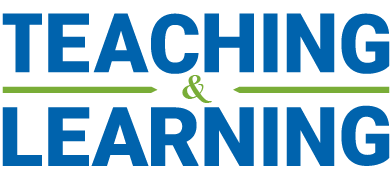Major vs. Minor Course Changes (Guidelines)
Approved April 2017. Revised May 2021.
To ensure the quality and consistency of Schulich’s course and program offerings, changes to the curriculum follow a formalized and coordinated process. Protocol for the reporting of course-level changes is sometimes unclear, however, given the differing requirements for what needs to be approved by or reported to the faculty and other parts of the university. The following guidelines are in place in order to provide clarity of process and to ensure that as changes are introduced within individual courses, the curriculum’s overall coordination, coherence, and comprehensiveness are maintained.
Course changes can be divided into two categories: minor and major. For changes to course elements other than those listed, consider whether the change will impact the course learning objectives/outcomes (what students know and can do upon completion of the course). As a general guideline, if the change impacts the course objectives/outcomes, it should receive approval prior to implementation.
Minor Course Changes:
- Minor course changes can be implemented without formal approval by a program committee or Faculty Council.
- Consultation with the course director should occur if the course has more than one section.
- Changes to the following course elements are considered minor:
- materials (readings, media, etc.)
- activities (sequence of content delivery)
- structure and requirements of deliverables / graded components
- some content (provided that the learning objectives/outcomes are not affected)
Major Course Changes:
- Changes to the course elements below are considered major and require the approval of the relevant program committee Schulich Faculty Council, and Senate (as required) (* Note: As of Nov 2020, changes in the governance structure require relevant proposals to be sent directly to Senate instead of FGS). While some of the elements listed may appear to be minor or inconsequential in nature (e.g., title, number, description), the formal approval and reporting requirements ensure that the university’s repository of course information (which form the basis of the course calendar, student transcripts, etc.) aligns with current offerings.
- Any fields captured in the University’s course repository:
- Course number
- Credit value
- Course Title
- Description
- Pre- / co-requisites
- Integration and cross-listing
- Course expiry/retirement
- Any changes that affect program outcomes
- Positioning of the course within the curriculum (core courses and electives that serve as prerequisites to other electives)
- Learning objectives/outcomes
- Content (if the degree of change would alter the learning objectives/outcomes)
- Deliverables / graded components to the extent that they either relate to program-level learning outcomes or do not conform with program / faculty guidelines (e.g., participation > 20%, group work > 50%, etc.; for details, please see the course proposal package on the ADA website)
- Teaching format (e.g., introduction of more than 30% online content or a major experiential component) (* Note: this does not apply to any course shifting to online delivery due to the COVID-19 situation.)
- Enrolment cap (needs to be pre-approved by the AD Academic and be endorsed by the appropriate faculty members and the program committee / Faculty Council)
- Any fields captured in the University’s course repository:
Major Changes to Multiple Course Elements:
When multiple elements of a course are to be changed, resulting in a significantly new version of the course, it may be appropriate to retire the existing version and submit a new course proposal in its stead. In such cases, it is recommended to consult with the ADA office on how to best proceed. (* Note: Details on major vs. minor program-level changes can be found within the Protocol for Major Modifications to Existing Programs PDF.)


